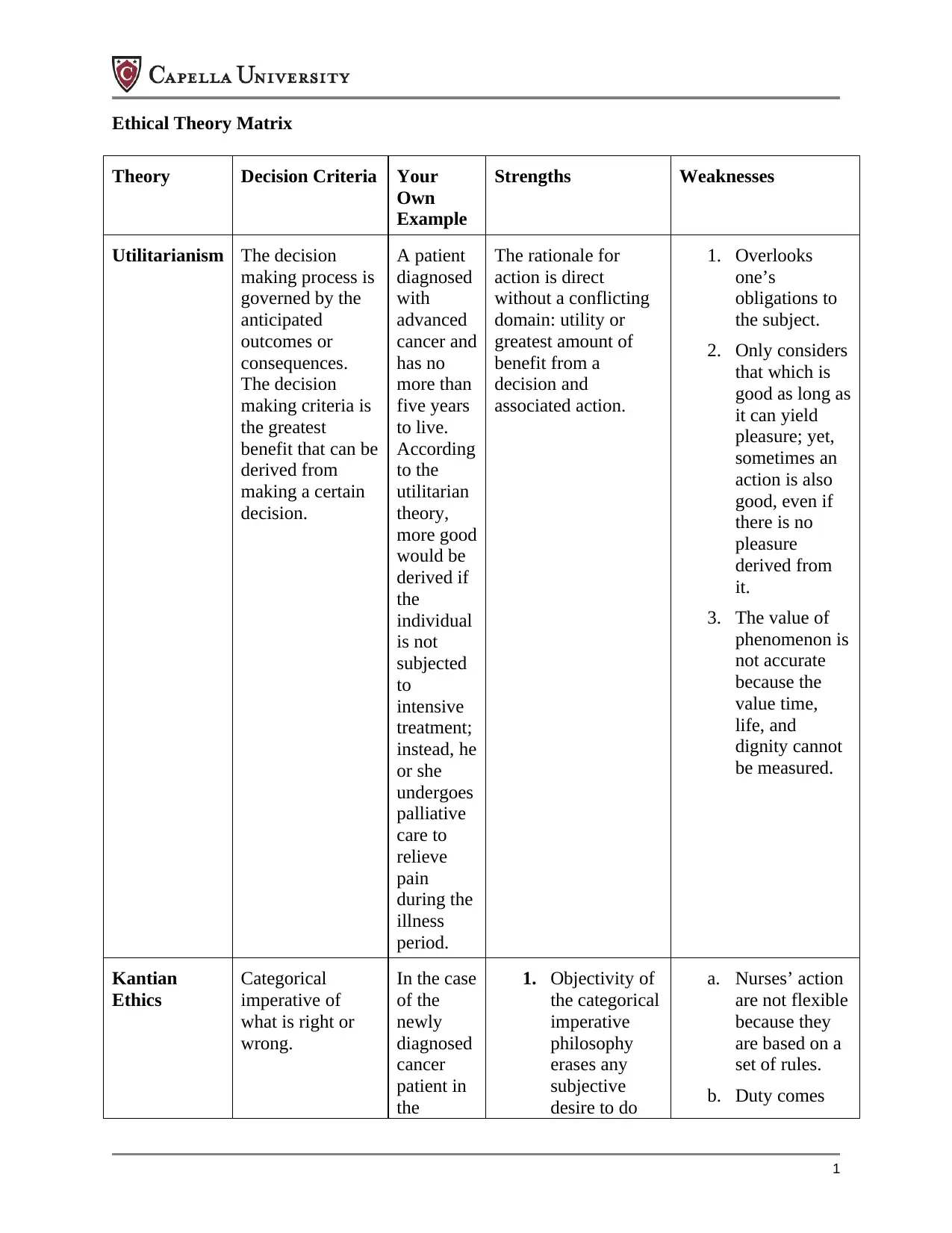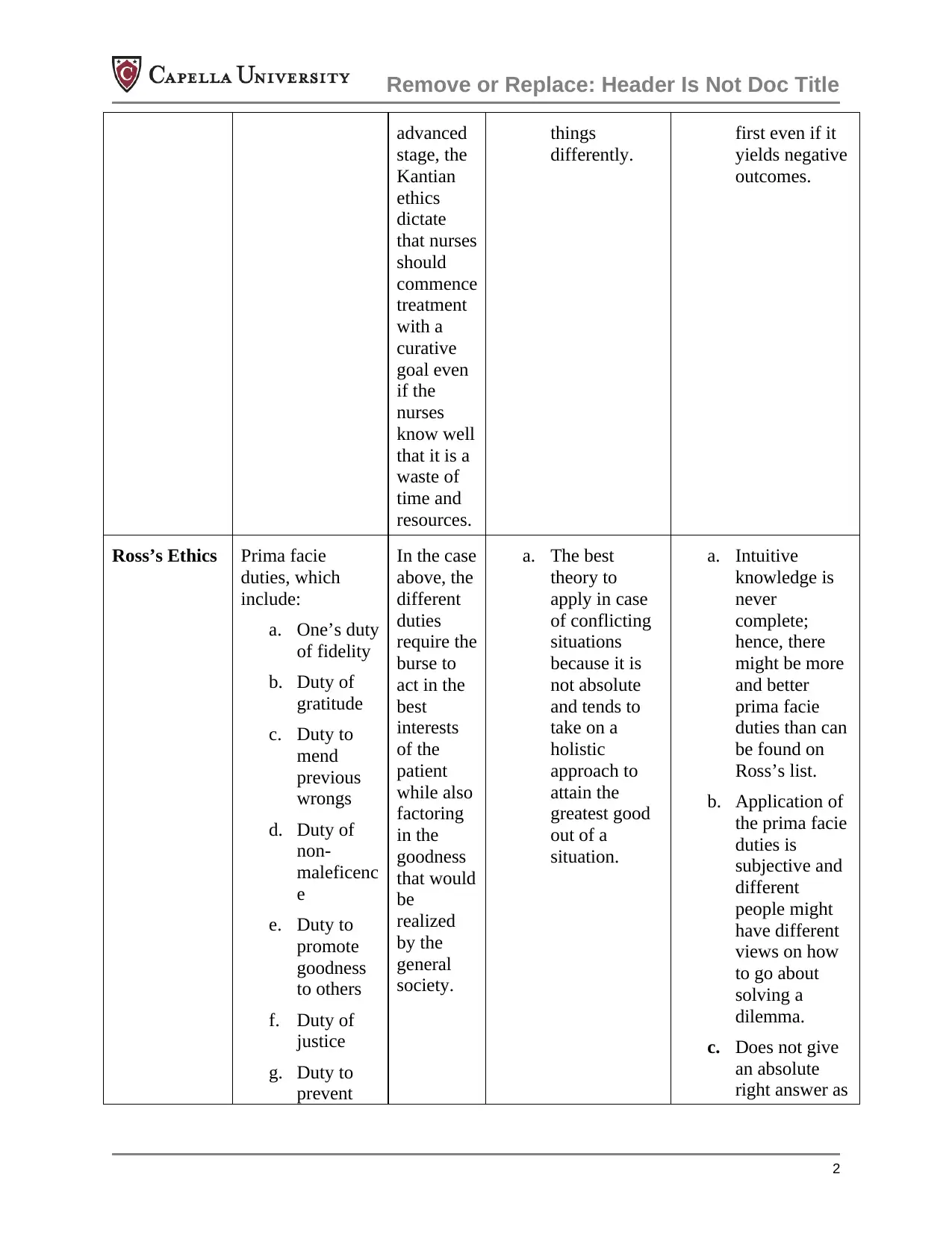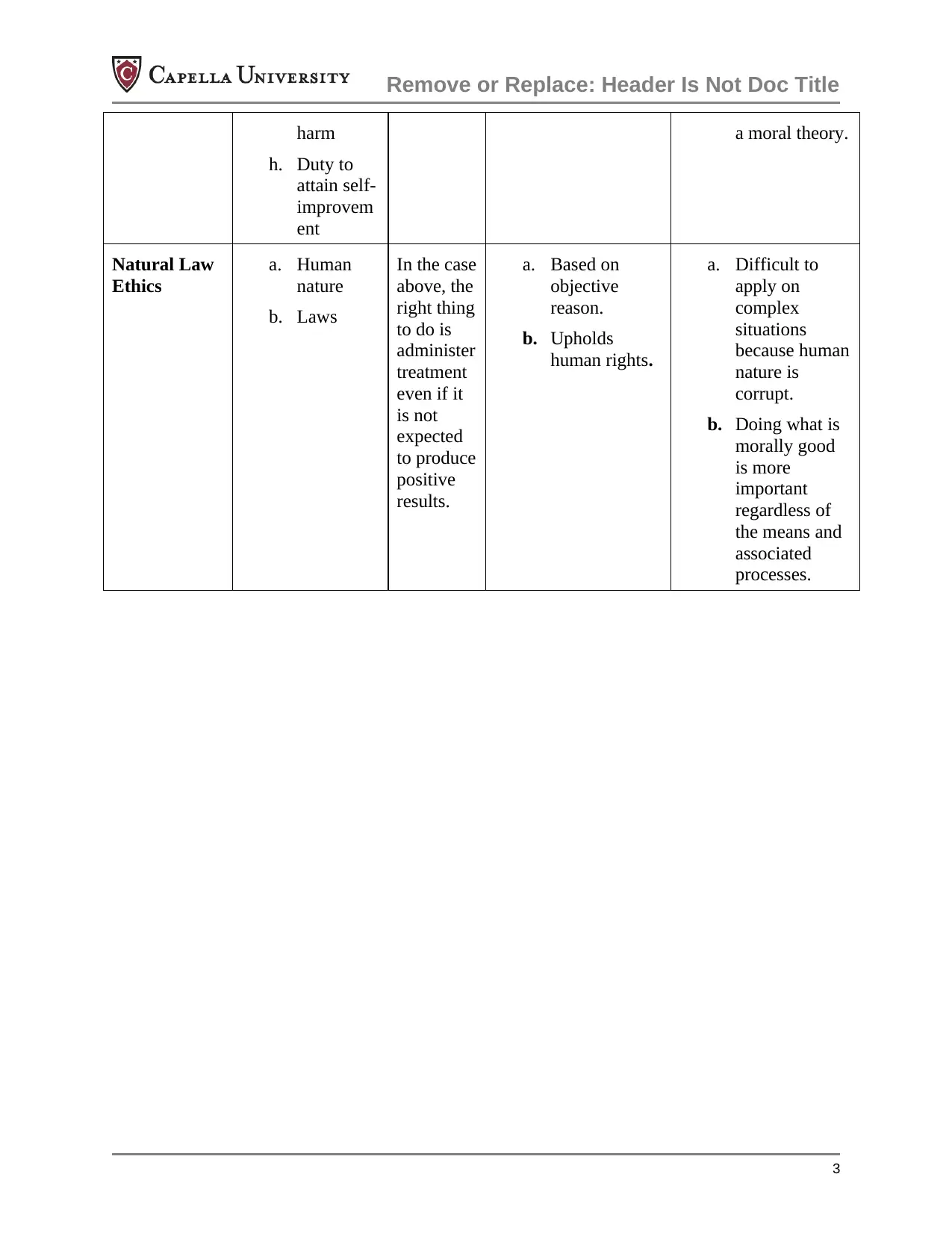Healthcare Ethics: Ethical Theory Matrix and Analysis
VerifiedAdded on 2022/11/25
|3
|863
|339
Homework Assignment
AI Summary
This document presents an ethical theory matrix, designed to analyze and compare various ethical frameworks within the context of healthcare decision-making. The matrix explores four key ethical theories: Utilitarianism, Kantian Ethics, Ross's Prima Facie Duties, and Natural Law Ethics. Each theory is examined in terms of its decision-making criteria, strengths, and weaknesses, with a specific healthcare scenario involving a patient with advanced cancer serving as a case study. The analysis considers how each ethical framework would approach the decision of whether to administer intensive treatment or palliative care. By evaluating each theory's rationale, the matrix aims to provide a comprehensive understanding of the complexities and ethical considerations involved in healthcare practice, offering a valuable resource for students studying medical ethics and related fields. This assignment is contributed to Desklib, a platform providing AI-based study tools for students.
1 out of 3










![[object Object]](/_next/static/media/star-bottom.7253800d.svg)